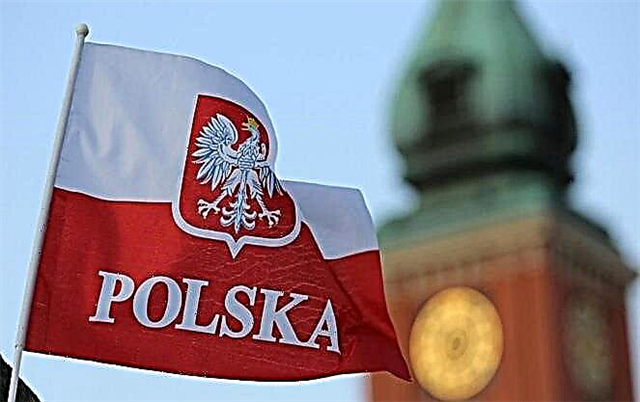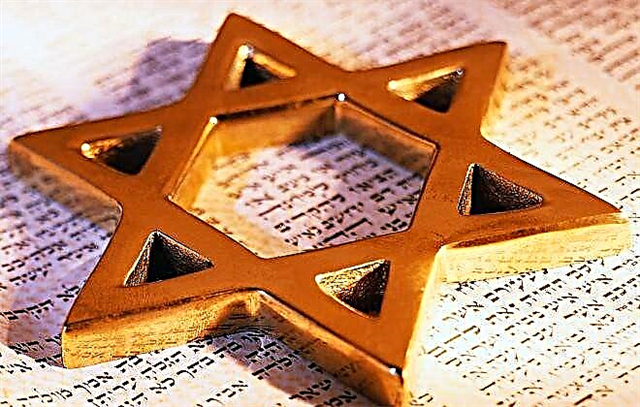Native Jews are not the only ones claiming immigration to Israel. It turns out that the current Israeli legislation gives the right to return, including those who have undergone conversion. It is believed that as a result of its passage, a non-believer joins the Jewish people. Moreover, not every such rite is recognized as valid. What is conversion, what is its essence, how does it take place, according to what canons, and who has the right to undergo it in 2021?

What is conversion in Judaism
Giyur is a ritual ceremony for the adoption of Judaism by a non-Jew. The first examples of its implementation are considered to be the conversion of Jethro, the father-in-law of Moses (Moshe). The very first formal answer to the question of what conversion is among the Jews was given in the Talmud and later Jewish codes.
As a result of the passage of the rite, the candidate for the Jews takes on the burden of observing all 613 commandments of the Torah before a specially convened rabbinical court - Beit Din.
The function of the rabbinical court is to determine the degree of a person's readiness to become a Jew and the purity of his intentions. After approval of the candidacy, the rabbinical court performs three obligatory rituals: brit, twill, and naming with a Jewish name, which we will discuss later.
It is believed that the acceptance of Judaism by a non-Jew makes such a person a full-fledged member of the Jewish community. That is, in the modern sense, a frankly religious sacrament is more used as a procedure for social and, to some extent, national adaptation.
The main motive for passing the conversion is the search for one's place in society, and only then is the desire to observe religious covenants. In this regard, different currents of Judaism perceive the conversions of other currents in different ways. For example, conversion among the reformists is considered invalid by orthodox Jews due to non-observance of some canons.
Who are the heres
Ger is a person who has undergone the rite of conversion, that is, who is not a native Jew, but who became a Jew as a result of a religious ritual. In this case, only the person who has undergone a real, valid conversion is considered a hero. Persons who have undergone a dubious rite, if they consider themselves full-fledged Jews, still jeopardize their status in Jewish society.
Even if a hero who has gone through the wrong ceremony honestly observes all the commandments and takes the path of spiritual awakening, he still does not become a Halachic Jew. Subsequently, the conversion they passed, if it was not passed according to the canons of the Torah, may be invalidated, which negatively affects the fate of both the false Geers themselves and their descendants in the Jewish community.
Righteous heres are people of the highest spiritual qualities. Taking into account the desire to get closer to the precepts of the Torah and Jewish traditions, the status of a Hera arises in a person even before he actually underwent the Giyur rite and became a Jew. That is, the qualities of a hera appear in the subject even before the adoption of Judaism.
Striving for truth and faith forces a person to completely change his lifestyle. According to the Talmud, giers are like babies: as a result of conversion to Judaism, they are no longer connected with their past, giyur atone for all their sins before the Almighty. But only if the conversion is passed for righteous reasons: those who have accepted Jewry insincerely doom their descendants to misfortune.
Torah's position on conversion
The Torah recognizes the exclusivity of the Jewish people. It is believed that the Jews perform a special task - they serve as a conductor of providence and presence, proclaim glory to the Most High and praise His name. The Torah recognizes that non-Jews (goyim) are also created in the image of God. Jews respect the mission of the goyim in the world, but the goyim must also respect the uniqueness and special purpose of the people of Israel. It is believed that God endowed the Jews with special qualities and properties - the right to teach mankind faith, demonstrating monotheism to other peoples.
The influence of Israel is effective when it distinguishes itself from other nations, without assimilating and not changing its qualities. This principle has been implemented since biblical times on the example of Abraham, who appealed to all nations, but at the same time kept his distance and forbade his offspring to marry representatives of another nation. On the contrary, he blessed all the families of the earth, grafting other peoples to the Jewish tree through conversion. Since then, only the orthodox conversion for women and men has been recognized, other trends are considered non-Halachic.
The teachings of Abraham were also spread through other characters - Ishmael and Esau, who united with other nations and, as a result of sermons, created Judaism and Christianity, respectively. Created on the basis of the Tanakh, they are a way of communicating God's commandments to non-Jews.
Conditions for accepting Judaism
Accepting Judaism means fulfilling two main conditions - merging with the Jewish people and burdening oneself with the obligation to observe the commandments of the Torah. From the point of view of logic, these processes have signs of independence. But in fact, they are interconnected: a person will not be able to cognize the Torah and accept its commandments until he joins the Jewish community.
Likewise, a Jew who alienated himself from his community is not considered a full-fledged Jew: the Torah was not given to the Jews until they demonstrated the unity of unity to the Almighty.
Jews believe that Israel and the Torah are in deep connection, only Jews are carriers of the word of God, and therefore only the Jewish community is the channel through which the teaching is transmitted. That is, membership in the Jewish community is a prerequisite for passing the conversion, otherwise a non-Jew cannot be admitted to the ceremony.

The second condition - the burden (yoke) of the commandments, acts both before and after conversion. At the time of the ceremony, the fact of observance of the commandments must be confirmed by recommendations from representatives of the community and a responsible rabbi.
Applying for conversion
Before a woman accepts conversion in Russia, as well as a man, it is necessary to appear before the rabbinical court and express a sincere desire to accept the obligations of observing God's commandments and to share the fate of the Jewish people. When submitting a petition, the candidate undergoes an interview with an authorized rabbi and, if necessary, an examination on knowledge of the Torah. If his application is accepted, he begins to prepare for the conversion. For example, in Moscow there is an "Ulpan-giyur" - something like training courses for persons admitted to the giyur.
During the petition, the candidate must submit a recommendation from the supporting rabbi and friends in the Jewish community, which will state their views on the candidate's observance of the Torah and the piety of his intentions.
If necessary, a second meeting is held at which the candidate demonstrates the acquired knowledge and is admitted to the rabbinical court. A court of three righteous rabbis ascertains the circumstances of his life and conducts a rigorous examination, according to the results of which it is determined whether conversion can be carried out. The decision is announced immediately after the trial.
Evaluation of candidates for conversion
The main task of the rabbinical court is to assess the truthfulness and sincerity of the intentions of the candidate for Gera, the degree of manifestation of his desire to observe the commandments, the ability to observe them, and other important factors. If the rabbi even slightly doubts the sincerity of the candidate's intentions, his application will not be accepted.
Even if the conversion is perfect, but the hero who passed it is not at all going to observe the commandments, the ceremony is considered invalid.If a conversion is performed, but at the time of its implementation the true intentions of the hera are unknown to the rabbis, the conversion is considered dubious and under certain circumstances may also be invalidated. If the hero subsequently observes the commandments, the dubious rite is recognized as valid.
Since Jews are prohibited from marrying non-Jews, many candidates justify their desire to convert to Judaism by seeking marriage. Some rabbis allow such conversions, but in most cases the likelihood that such a hero will keep the commandments is rather low, especially since a spouse who has already chosen a non-Jew as his spouse has already demonstrated an attitude towards Jewish values.
In addition to them, unsuitable candidates are also recognized:
- mentally disabled, as they are not responsible for their behavior;
- deaf and dumb - those who cannot hear and speak, cannot undergo conversion;
- people who live in a place where they cannot keep the commandments;
- Amalek men, some Italians.
Invalidity of conversion
The main reason for the invalidation is the insincerity of intentions to observe the Jewish commandments on the part of those who decided to undergo the conversion rite. At the same time, a candidate for Gera must want to observe all the commandments without exception. But the desire to observe them alone is not enough - it is important to understand the divine source of their generation and their connection with conversion.
Making only one declaration of intent to observe the commandments is not enough, an important condition for its validity is the approval of the candidacy by the rabbinical court, and the utterance itself is meaningless. Erroneous or incomplete acceptance of the obligations of the Torah is also meaningless and invalid.
Conservative and reformist conversions in Moscow are similarly recognized as invalid. These Jewish movements do not recognize the divine origin of the commandments and the rite itself, therefore their ideas are not recognized by orthodox Jews. Their delusion is that the commandments taken upon themselves are only a rule of behavior in society, which can be changed as a result of changes that have occurred in this society during certain periods of time.
For example, progressive Judaism believes that the Jewish canons should be transformed in modern conditions, and this is a delusion from the point of view of the orthodox. This position was reflected in the rituals they conduct.
For example, the ritual of the reformists is limited to brit only. Conservative courts also require passing the twill. In the context of the issue of repatriation to the Promised Land, the question arises of what kind of conversion is recognized in Israel.
Only orthodox ceremonies are recognized by the State Rabbinate of Israel. However, there are a lot of decisions of the BAGATS, in which persons who have undergone conversion in the framework of conservative and reformist movements are recognized as Jews. Nevertheless, their status continues to be half-hearted, although in many cases it gives the right to repatriation.
The process of accepting Jewishness

The process of meeting with the rabbis and passing the exam is just preparation for the conversion. The conversion procedure itself is carried out after the approval of the rabbinical court and consists of two obligatory rituals:
- Brit milah or circumcision for men. This is a sign of the union between the Lord and Israel, a prescription that helps preserve the holiness of the Jewish people. If doctors forbid a candidate to be circumcised, the ceremony is not allowed, therefore the answer to the question whether conversion is possible without circumcision is obvious - no, it is impossible. If circumcision was performed before the ceremony, a few drops of blood are released from the part of the body in which the circumcision is performed. Circumcision is performed under anesthesia and under the supervision of the judges of the rabbinical court.
- Twila - a ritual immersion in the waters of the mikveh for women and men, symbolizes the process of purification. At this time, the judges repeat the fundamentals of Judaism to the heru, the meaning of some of the commandments.
After passing the ritual, the hero receives a new Hebrew name, even if his old name was also Hebrew.
Special cases
Some candidates have special rules. For example, boys under 13 and girls under 12 cannot be converted, but the children of Heres who are brought to trial can also be converted to Jewry before reaching this age. But this is done only for children who will be brought up in the atmosphere of the Torah and learn the commandments.
If a child is born before the adoption of Judaism by his mother, he is not recognized as a Jew - he must go through the ritual on his own. If born after the ritual, he is recognized as a full-fledged Jew.
If the process of conception took place before the conversion took place, and the birth took place after, the child is recognized not as a Jew, but as a hero who underwent the ritual together with the mother. So that you can accurately determine the status of the newborn, after passing the twill, a woman is recommended to refrain from intimacy with a man for 3 months.
Life after passing the rite
From the moment of conversion, the person is recognized as a newborn, which, according to Halakha, cuts off his connection with his former relatives. This does not mean that he should cut ties with them: he continues to treat them with respect, but not in the context of the commandment "respect your mother and your father." In any case, the new way of life does not correspond to the way of blood relatives of the past rite, and therefore, to some extent, he will have to move away from them, and in different cases their relationship should develop in different ways.
In parallel, the hero must adhere to the customs of the community, which became the source of his faith. This also applies to reading prayers, which he can perform on an equal basis with other Jews. There are other features as well:
- when marrying Jews, it is customary to conclude marriage contracts (ktuba), in which geres are called by a special name: ben Avraham-avi and giyorta for men and women, respectively;
- a special way applies even to the dishes that the Jew used before the ceremony: since he could eat non-kosher food, the dishes should be stopped;
- every hero is obliged to love other heroes and Jews within the framework of the commandment of love for one's neighbor, any harassment against them is prohibited.
Where can you go for conversion in Russia?
The main venue for the rite of acceptance to Judaism is conversion in Moscow. The Rabbinical Court under the Chief Rabbinate of Russia is one of several orthodox halachic courts, whose rituals are unquestioningly recognized both from a spiritual and legal point of view.
Geres living outside Moscow can also undergo the ritual, but first they need to contact a representative of the Chief Rabbinate in the city of residence of the Jewish community of which the candidate is a member for advice. For example, you can ask the Chief Rabbi of St. Petersburg for the place of conversion in St. Petersburg. Here you can find information about other cities.
You can also get the necessary information in community centers, for example, in Moscow, such is the MEOTS - synagogue in Maryina Roshcha.
Repatriation based on Judaism
For many heres, the important question is whether conversion gives the right to repatriation to Israel. In 2021, the answer to this question is given only by Israel's Law of Return No. 5710-1950 of 07/06/1950 (חוק השבות).
The law establishes that not only persons with Jewish roots are recognized as Jews, but also those who, in accordance with the procedure, converted to Judaism through conversion. They are entitled to the same rights, benefits and incentives as repatriates by blood. It is enough to go through conversion, and Israeli citizenship can be obtained immediately upon arrival in one of the Israeli cities.
Conclusion
The ceremony of converting a non-Jew to a Jew is a long process, as a result of which a person takes on the obligation to observe the 613 commandments of the Torah and to share the fate of the Jewish people.The conversion is carried out by an authorized rabbinical court and can only be carried out against a candidate whose sincere intentions have been confirmed. From this point of view, the ritual of conversion has exclusively spiritual roots.
But in modern conditions, especially from the point of view of the possibility of repatriation, the rite of acceptance of Judaism has become a procedure of social and national adaptation. Hence the birth of several currents of Judaism. Only the Orthodox rite is recognized by Orthodox Jews and the State Rabbinate of Israel, although other versions of it also provide an opportunity for repatriation.











